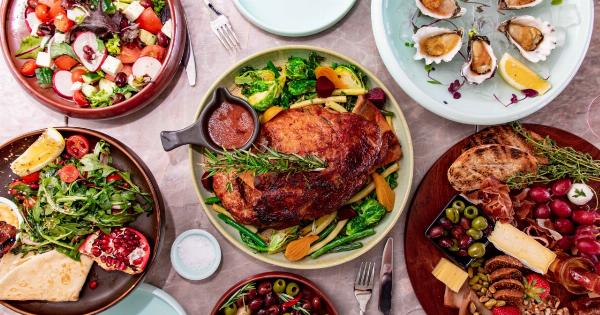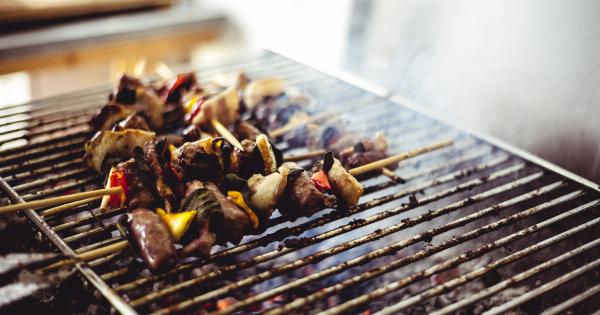Anemia is a condition that occurs when the body doesn’t have enough healthy red blood cells to transport oxygen to its tissues and organs. A common symptom of anemia is fatigue, as the body becomes oxygen-deprived.
While anemia can have various causes, including iron deficiency and vitamin deficiencies, adopting a plant-based diet can provide an excellent source of nutrients to combat anemia. In this article, we will explore the top plant-based foods that are rich in iron, folate, vitamin B12, and vitamin C, all of which are essential for supporting healthy blood cells and combating anemia.
The Power of Plant-Based Iron
Iron is a crucial mineral for the production of healthy red blood cells. While commonly associated with animal sources like red meat, there are numerous plant-based sources of iron that can help combat anemia.
1. Dark Leafy Greens
Dark leafy greens such as spinach, kale, and Swiss chard are excellent sources of plant-based iron. Adding these greens to your diet can boost iron levels and promote healthy red blood cell production.
They are also rich in folate and vitamin C, which further enhance iron absorption.
2. Legumes
Legumes, including lentils, chickpeas, and beans, are packed with iron, making them an ideal addition to a plant-based diet. They are also a great source of protein and fiber, providing a range of health benefits beyond combatting anemia.
3. Quinoa
Quinoa is a versatile grain that is high in iron and offers a complete protein profile, making it an excellent choice for those following a plant-based diet.
This nutrient-rich grain also contains folate and other essential minerals, supporting overall health.
4. Nuts and Seeds
Nuts and seeds, such as almonds, pumpkin seeds, and sesame seeds, are not only a rich source of iron but also provide healthy fats and other vital nutrients.
Including a variety of nuts and seeds in your diet can help boost iron levels and improve overall nutrition.
The Importance of Folate
Folate, or vitamin B9, plays a key role in red blood cell production and helps prevent certain types of anemia. Plant-based sources of folate are abundant and can ensure an adequate intake of this essential nutrient.
5. Asparagus
Asparagus is a nutrient-dense vegetable that contains a considerable amount of folate. Incorporating asparagus into your meals can help boost folate levels and contribute to combating anemia.
6. Citrus Fruits
Citrus fruits like oranges, lemons, and grapefruits are not only rich in vitamin C but also provide a good source of folate. Their tangy taste and versatility make them easy to incorporate into daily meals or enjoy as a refreshing snack.
7. Avocado
Avocado is a unique fruit that contains a good amount of folate, along with healthy fats. It can be used in various dishes, from salads to smoothies, to boost folate intake while enjoying its creamy texture and rich flavor.
The Vitamin B12 Connection
Vitamin B12 is essential for healthy red blood cell production, and its deficiency is often associated with anemia.
While plant-based sources of vitamin B12 are limited, there are fortified options available for individuals following a vegan or vegetarian lifestyle.
8. Fortified Plant Milks
Fortified plant milks, such as soy milk and almond milk, are excellent sources of vitamin B12 for those who avoid dairy or animal products. Check the label to ensure the milk is fortified with vitamin B12 to reap its benefits.
9. Nutritional Yeast
Nutritional yeast is a popular ingredient for adding a cheesy flavor to plant-based dishes. It is often fortified with vitamin B12, making it a great choice to increase vitamin B12 intake and combat anemia.
10. Supplements
In some cases, individuals may need to rely on vitamin B12 supplements to meet their needs. Consult with a healthcare professional to determine the appropriate dosage and form of supplementation based on your individual requirements.
Incorporating Anemia Fighters into Your Plant-Based Diet
Creating a well-balanced and nutrient-rich plant-based diet is essential for combatting anemia. Here are some tips on incorporating these anemia fighters into your daily meals:.
1. Colorful Salads
Create vibrant salads by combining dark leafy greens, avocado, nuts, and seeds. Add sautéed asparagus or roasted beets for an extra folate boost.
2. Wholesome Grains
Replace refined grains with nutrient-rich options like quinoa or whole-grain bread fortified with iron and vitamin B12 to support healthy blood cell production.
3. Smoothies
Add a handful of spinach or kale to your favorite smoothie recipe. Include some vitamin C-rich fruits like strawberries or kiwi to aid iron absorption.
4. Legume-Based Meals
Incorporate lentils, chickpeas, or beans into hearty soups, stews, or curries for a satisfying and iron-packed meal.
Conclusion
Adopting a plant-based diet can provide an abundance of nutrients that combat anemia, including plant-based iron, folate, vitamin B12, and vitamin C.
Incorporating a variety of dark leafy greens, legumes, quinoa, nuts, seeds, asparagus, citrus fruits, avocado, fortified plant milks, nutritional yeast, and supplements can help ensure an adequate intake of these essential nutrients. By making thoughtful choices and properly combining plant-based foods, individuals can support healthy red blood cell production and effectively combat anemia within a plant-based lifestyle.































